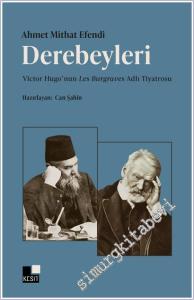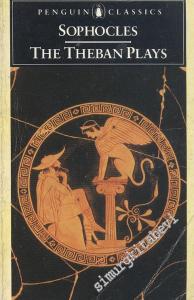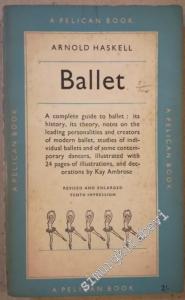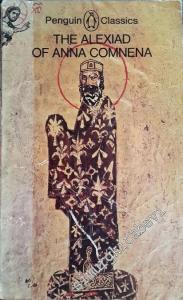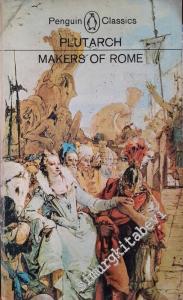#smrgSAHAF The Theban Plays: King Oedipus / Oedipus at Colonus / Antigone - 1984
Kondisyon:
Çok İyi
Basıldığı Matbaa:
Dizi Adı:
Penguin Classics
ISBN-10:
140440038
Kargoya Teslim Süresi (İş Günü):
1&3
Hazırlayan:
Cilt:
Amerikan Cilt
Ciltçi:
Koordinatör:
3.96
Boyut:
12x18
Sayfa Sayısı:
168
Basım Yeri:
London
Basım Tarihi:
1984
Çeviren:
by E. F. Waiting
Kapak Türü:
Karton Kapak
Kağıt Türü:
3. Hamur
Dili:
İngilizce
Kategori:
indirimli
87,50
Havale/EFT ile:
85,75
1 adet mevcut
1199134593
520339

https://www.simurgkitabevi.com/the-theban-plays-king-oedipus-oedipus-at-colonus-antigone-1984
The Theban Plays: King Oedipus / Oedipus at Colonus / Antigone - 1984 #smrgSAHAF
87.50
‘O Light! May I never look on you again,
Revealed as I am, sinful in my begetting,
Sinful in marriage, sinful in shedding of blood!'
The legends surrounding the royal house of Thebes inspired Sophocles (496–406 BC) to create a powerful trilogy of mankind's struggle against fate. King Oedipus tells of a man who brings pestilence to Thebes for crimes he does not realise he has committed, and then inflicts a brutal punishment upon himself. With profound insights into the human condition, it is a devastating portrayal of a ruler brought down by his own oath. Oedipus at Colonus provides a fitting conclusion to the life of the aged and blinded king, while Antigone depicts the fall of the next generation, through the conflict between a young woman ruled by her conscience and a king too confident in his own authority.
E. F. Watling's masterful translation is accompanied by an introduction, which examines the central themes of the plays, the role of the Chorus, and the traditions and staging of Greek tragedy.
Revealed as I am, sinful in my begetting,
Sinful in marriage, sinful in shedding of blood!'
The legends surrounding the royal house of Thebes inspired Sophocles (496–406 BC) to create a powerful trilogy of mankind's struggle against fate. King Oedipus tells of a man who brings pestilence to Thebes for crimes he does not realise he has committed, and then inflicts a brutal punishment upon himself. With profound insights into the human condition, it is a devastating portrayal of a ruler brought down by his own oath. Oedipus at Colonus provides a fitting conclusion to the life of the aged and blinded king, while Antigone depicts the fall of the next generation, through the conflict between a young woman ruled by her conscience and a king too confident in his own authority.
E. F. Watling's masterful translation is accompanied by an introduction, which examines the central themes of the plays, the role of the Chorus, and the traditions and staging of Greek tragedy.
‘O Light! May I never look on you again,
Revealed as I am, sinful in my begetting,
Sinful in marriage, sinful in shedding of blood!'
The legends surrounding the royal house of Thebes inspired Sophocles (496–406 BC) to create a powerful trilogy of mankind's struggle against fate. King Oedipus tells of a man who brings pestilence to Thebes for crimes he does not realise he has committed, and then inflicts a brutal punishment upon himself. With profound insights into the human condition, it is a devastating portrayal of a ruler brought down by his own oath. Oedipus at Colonus provides a fitting conclusion to the life of the aged and blinded king, while Antigone depicts the fall of the next generation, through the conflict between a young woman ruled by her conscience and a king too confident in his own authority.
E. F. Watling's masterful translation is accompanied by an introduction, which examines the central themes of the plays, the role of the Chorus, and the traditions and staging of Greek tragedy.
Revealed as I am, sinful in my begetting,
Sinful in marriage, sinful in shedding of blood!'
The legends surrounding the royal house of Thebes inspired Sophocles (496–406 BC) to create a powerful trilogy of mankind's struggle against fate. King Oedipus tells of a man who brings pestilence to Thebes for crimes he does not realise he has committed, and then inflicts a brutal punishment upon himself. With profound insights into the human condition, it is a devastating portrayal of a ruler brought down by his own oath. Oedipus at Colonus provides a fitting conclusion to the life of the aged and blinded king, while Antigone depicts the fall of the next generation, through the conflict between a young woman ruled by her conscience and a king too confident in his own authority.
E. F. Watling's masterful translation is accompanied by an introduction, which examines the central themes of the plays, the role of the Chorus, and the traditions and staging of Greek tragedy.
Yorum yaz
Bu kitabı henüz kimse eleştirmemiş.









